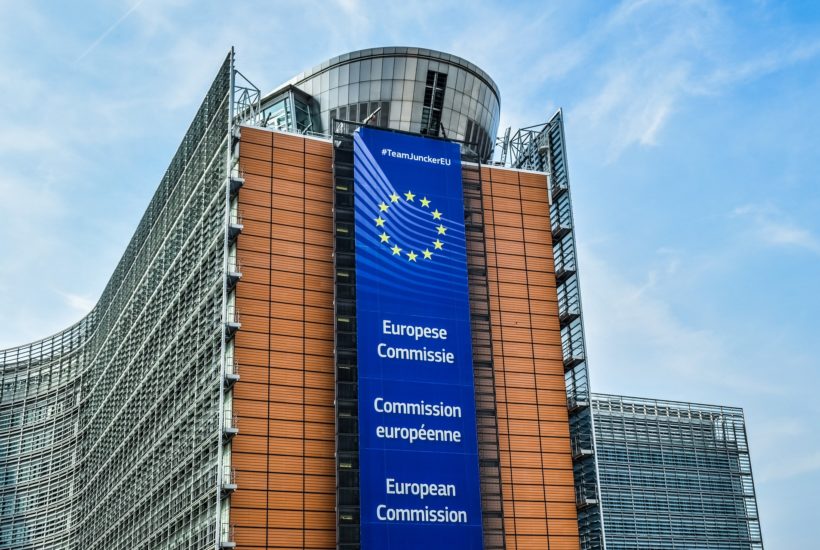Featured
Why should banks and FinTech operators ally?
Crowdfunding lending platforms in Italy have put together availability of capital and technology and automation to support SMEs and families overcome the crisis caused by the coronavirus pandemic. The European Commission has presented a proposal for a regulation on crowdfunding. The regulation is part of the broader FinTech Action Plan, which aims to introduce an optional regime in the EU.

Equity crowdfunding has raised $142 million (€130 million) since the start of operations in Italy, with growth from $40 million (€37 million) in 2018 to $70 million (€64.5 million) in 2019. Crowdfunding lending in its many forms (social lending, corporate lending, and invoice trading) has exceeded $1.09 billion (€1 billion) in funding over the past year.
For a deeper insight into the crowdfunding law and to find out the most important business news about successful crowdfunding campaigns, install our companion app Born2Invest.
Many lending crowdfunding platforms in Italy have automatically activated moratorium mechanisms to allow those financed to face the emergency linked to COVID-19. In this way, they are granting the suspension of installment payments (partly capital) without waiting for government measures and simply doing online censuses among lenders who responded with a great sense of responsibility in favor of such proposals.
In addition, these are operators who have made process and technology automation their strong point and, therefore, have no problems operating smart working systems. Moreover, the parties do not have to meet physically, as all contracts are signed electronically or with the use of digital signatures.
In short, the platforms that offer alternative finance systems are certainly able to continue to operate without particular problems in a difficult context like the one we are experiencing. They will continue to be efficient, quick in responding and easy to access for anyone with a PC, tablet or smartphone.
All this automatization of the processes of matching between supply and demand and standardization of contractual documentation has been questioned by the Bank of Italy in the context of its communication on social lending. That is even if this institution believes that “the spread of P2P Lending can contribute to reducing the cost of financial intermediation and improve the financial conditions of households and SMEs by increasing the supply of credit to them.”
A regulation on crowdfunding is necessary at the European Union level
In the meantime, the EU institutions have also become convinced that the issue needs to be regulated at the EU level to avoid regulatory arbitrage. The Commission has presented a proposal for a regulation on crowdfunding, which is part of the broader FinTech Action Plan.
The plan aims to introduce an optional regime in the EU. The regime would state that managers of platforms that allow online lending or capital raising could choose to join if they wish to operate across the EU to raise capital up to the $8.75 million (€8 million) limit per transaction.
Venture capital and private equity funds seem to have raised just over $1.2 billion (€1.1 billion) in the last year. Considering that many funds, after 2009, have closed their offices in Italy or have significantly reduced their operations at the European/world level, it must necessarily be assumed that they will not be particularly active in the near future. Of course, that would happen if the economic cycle should suffer too much from the situation caused by the spread of COVID-19.
Also, in this case, it is expected that the role of FinTech operators can finally emerge, through the use of Initial Coin Offerings or Security Tokens Offerings. The tokens can be security tokens, utility tokens or currency tokens. There has been much talk in Italy about capital raising operations, often with little knowledge of the facts, and without using them in the ways deemed most appropriate and permitted by law.
What will happen to banking institutions?
It is difficult to say, because a lot will depend both on the support they will receive from central banks and on their actual ability/possibility to transfer to businesses and households the liquidity needed to support the restart of activities in an orderly manner and without causing further problems. Certainly, we cannot imagine that what happened has no consequences for the banking system, which was already struggling with a difficult identity crisis caused by the advent of PSD2 (the directive governing payment services) and open banking.
Given the situation, it would seem logical to expect banks and alternative finance operators to join forces to optimize their respective skills. They should combine the availability of capital on the one hand and availability of technology and automation on the other, in order to directly provide SMEs, micro-enterprises, and households with the necessary liquidity at the lowest possible cost.
__
(Featured image by dimitrisvetsikas1969 via Pixabay)
DISCLAIMER: This article was written by a third party contributor and does not reflect the opinion of Born2Invest, its management, staff or its associates. Please review our disclaimer for more information.
This article may include forward-looking statements. These forward-looking statements generally are identified by the words “believe,” “project,” “estimate,” “become,” “plan,” “will,” and similar expressions. These forward-looking statements involve known and unknown risks as well as uncertainties, including those discussed in the following cautionary statements and elsewhere in this article and on this site. Although the Company may believe that its expectations are based on reasonable assumptions, the actual results that the Company may achieve may differ materially from any forward-looking statements, which reflect the opinions of the management of the Company only as of the date hereof. Additionally, please make sure to read these important disclosures.
First published in CORCOM, a third-party contributor translated and adapted the article from the original. In case of discrepancy, the original will prevail.
Although we made reasonable efforts to provide accurate translations, some parts may be incorrect. Born2Invest assumes no responsibility for errors, omissions or ambiguities in the translations provided on this website. Any person or entity relying on translated content does so at their own risk. Born2Invest is not responsible for losses caused by such reliance on the accuracy or reliability of translated information. If you wish to report an error or inaccuracy in the translation, we encourage you to contact us.

-

 Crypto6 days ago
Crypto6 days agoCrypto Markets Under Pressure as Vitalik Buterin Sells 17,000 ETH
-

 Markets2 weeks ago
Markets2 weeks agoWeather-Driven Supply Outlook Lifts Coffee Markets in Brazil and Vietnam
-

 Impact Investing1 day ago
Impact Investing1 day agoGreen vs. Brown Stocks: Climate Policy, Capital Costs, and the Battle for Market Returns
-

 Business2 weeks ago
Business2 weeks agoTopRanked.io Weekly Affiliate Digest: What’s Hot in Affiliate Marketing [Best Technology Affiliate Programs]

























